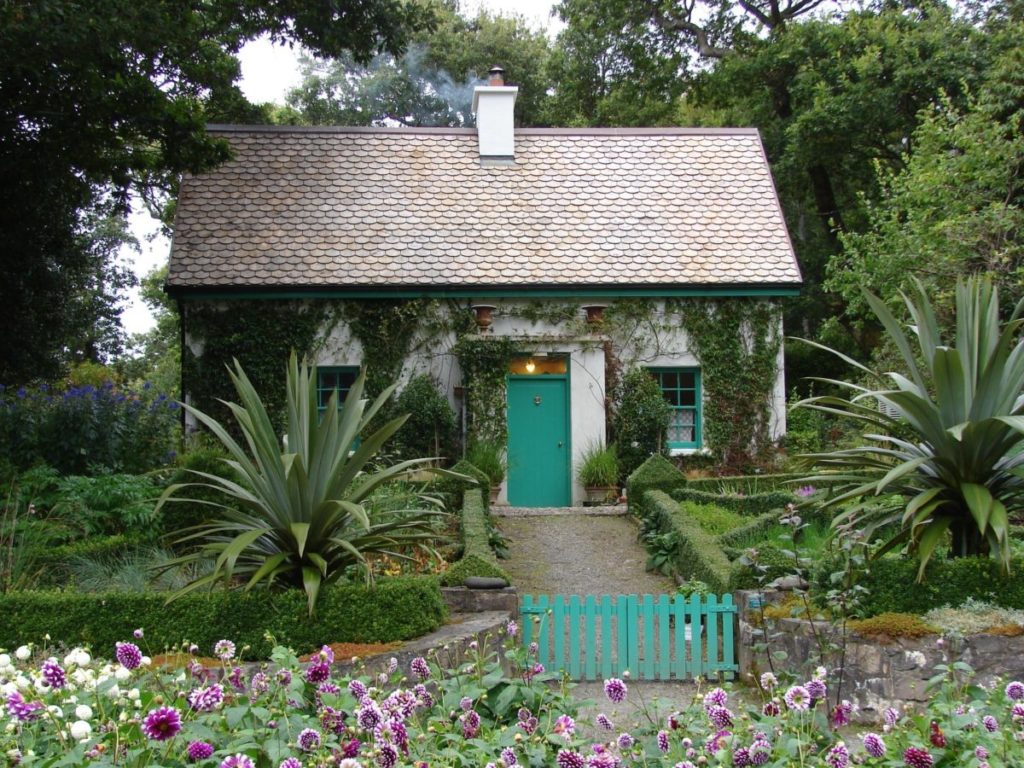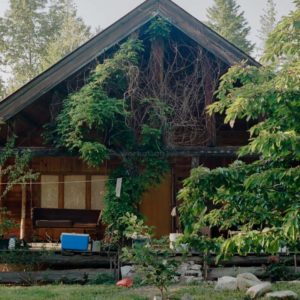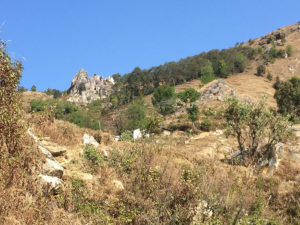Living off-grid is a journey that allows individuals and families to break free from the constraints of modern society and embrace a simpler way of life.
By adopting sustainable practices such as renewable energy sources, organic gardening, and self-sufficient living, we can rediscover the joys of manual labor, community connection, and a closer relationship with nature.
This journey not only benefits our environment but also improves our overall well-being and quality of life.
Whether you’re just starting out or have been on this path for years, there’s always room to learn and grow in the world of off-grid living.
Join me as we embark on this fascinating journey together, and let’s discover the wonders of a simpler, more sustainable way of life.
Embrace simplicity
Living off-grid means simplifying your life and letting go of unnecessary possessions, habits, and obligations. Embrace the idea that less is more and focus on what truly brings you joy and fulfillment.
By letting go of unnecessary possessions, habits, and obligations, you can focus on what truly brings you joy and fulfillment.
This may involve downsizing your living space, reducing your consumption of resources, and investing in renewable energy sources.
It also means simplifying your social life by cutting ties with toxic relationships and focusing on nurturing meaningful connections with others.
The benefits of living off-grid are numerous.
By living more simply, you can reduce your carbon footprint, save money on utility bills, and enjoy a greater sense of independence and self-sufficiency.
You can also cultivate a greater appreciation for nature and the rhythms of the seasons.
Living off-grid can lead to a more fulfilling and purposeful life, as you learn to appreciate the simple pleasures and find joy in the everyday moments.
To start living off-grid, begin by assessing your current lifestyle and identifying areas where you can simplify and let go of unnecessary items and commitments.
Consider downsizing your living space, selling or donating unused items, and investing in renewable energy sources.
Also, make a conscious effort to reduce your consumption of resources and focus on nurturing meaningful connections with others.
By embracing the idea that less is more, you can create a more sustainable, fulfilling life for yourself.
Assess your needs
Take an honest look at your needs and determine what is essential to your well-being. This will help you prioritize what to keep and what to let go of.
To effectively declutter your life, it’s important to start by taking an honest look at your needs and determining what is essential to your well-being.
This means asking yourself what you truly need in order to live a fulfilling life, and what items or activities are simply taking up space or adding unnecessary stress.
By identifying your essential needs, you can prioritize what to keep and what to let go of.
For example, if you find that you need a comfortable place to sleep each night, you may decide to prioritize keeping a mattress and bedding.
On the other hand, if you realize that you can live without a certain hobby or activity, you may choose to let it go.
By prioritizing what is essential, you can create a more streamlined and functional living space that supports your well-being.
Produce your own food
Growing your own food can be a significant part of living off-grid. Even if you have a small space, you can still grow herbs, vegetables, and fruits that can provide you with a reliable source of fresh, healthy produce.
Growing your own food is an essential aspect of living off-grid, and even small spaces can be transformed into thriving gardens.
With a little creativity and some careful planning, you can cultivate a variety of herbs, vegetables, and fruits that will provide you with a reliable source of fresh, healthy produce.
By choosing the right plants for your climate and soil type, you can enjoy a bountiful harvest year after year.
Consider incorporating raised beds, trellises, and composting techniques to make the most of your space and resources.
Consider implementing efficient irrigation systems and pest management strategies to ensure the health and success of your garden.
With dedication and attention to detail, growing your own food can be a rewarding and sustainable way to feed yourself and your family.
Collect and store rainwater
Rainwater collection and storage can provide you with a sustainable source of water for your home and garden. You can use rainwater for irrigation, washing, and even drinking (if properly treated).
Collecting and storing rainwater is an excellent way to obtain a sustainable source of water for your home and garden.
Not only can you use rainwater for irrigation and washing, but it can also be treated and used for drinking, providing a reliable and eco-friendly alternative to municipal water supplies.
With a rainwater collection system, you can harness the power of nature to collect and store rainwater during wet seasons, which can then be used during dry spells.
This can be particularly beneficial during times of drought or water shortages, as it provides a local and renewable source of water.
In addition to providing a sustainable source of water, rainwater collection and storage can also help to reduce your water bill and protect the environment.
By using rainwater instead of municipal water, you can decrease your reliance on water from distant sources, which can help to lower your carbon footprint and reduce the amount of energy needed to transport and treat water.
To make the most of rainwater collection and storage, it’s important to choose the right equipment and follow proper maintenance procedures.
For example, you’ll need a high-quality rainwater collection system that can collect and store rainwater without contamination.
You’ll need to ensure that your storage tanks are cleaned and maintained regularly to prevent the growth of harmful bacteria and algae.
Overall, rainwater collection and storage is a smart and sustainable way to obtain a reliable source of water for your home and garden.
By taking advantage of this natural resource, you can reduce your reliance on municipal water supplies, lower your water bill, and protect the environment.
Use renewable energy sources
Transitioning to renewable energy sources like solar, wind, or hydro power can help you reduce your reliance on non-renewable energy sources. Consider investing in solar panels, a wind turbine, or a hydroelectric generator to power your home.
Transitioning to renewable energy sources like solar, wind, or hydro power can significantly reduce your reliance on non-renewable energy sources and help you take a important step towards a more sustainable future.
To begin with, you can consider investing in solar panels, which can be easily installed on your roof or backyard.
These panels use photovoltaic technology to convert sunlight into electricity, providing a clean and reliable source of energy for your home.
You can opt for a wind turbine, which can be installed in your backyard or a nearby location to harness the power of wind energy.
This not only provides electricity but also helps reduce noise pollution and increases the value of your property.
Alternatively, if you have access to a nearby water source, you can consider investing in a hydroelectric generator.
This can be a more complex and costly option, but it can provide a reliable source of renewable energy and significantly reduce your carbon footprint.
By transitioning to renewable energy sources, you can not only reduce your reliance on non-renewable energy sources but also lower your energy bills and contribute to a more sustainable future.
Compost and recycle
Composting and recycling can help reduce your waste and create a more sustainable living environment. Composting can turn food waste into fertilizer for your garden, while recycling can help reduce your household waste and conserve natural resources.
Composting and recycling are two simple yet powerful tools that can help reduce your waste and create a more sustainable living environment.
By composting your food waste, you can turn it into a nutrient-rich fertilizer for your garden, rather than sending it to a landfill where it can contribute to greenhouse gas emissions and climate change.
Not only does composting reduce your waste output, but it also improves the health of your soil, allowing your plants to grow stronger and healthier.
Similarly, recycling can help reduce your household waste and conserve natural resources.
By recycling paper, plastic, and glass, you can help reduce the amount of energy needed to produce new products, as well as the amount of waste sent to landfills.
For example, recycling just one ton of paper can save 17 trees, 7,000 gallons of water, and 4,100 kilowatt-hours of electricity.
By incorporating composting and recycling into your daily routine, you can make a significant impact on the health of your community and the planet.
So why not start today and see the difference for yourself?
Use eco-friendly building materials
When building or renovating your home, choose eco-friendly materials like recycled lumber, straw bales, or earthbags. These materials are sustainable, non-toxic, and can help reduce your carbon footprint.
When building or renovating your home, consider choosing eco-friendly materials that not only contribute to a sustainable future but also provide numerous benefits for your health and the environment.
Recycled lumber, straw bales, and earthbags are excellent options that are both sustainable and non-toxic.
Recycled lumber is made from salvaged materials that would otherwise end up in landfills, reducing waste and conserving natural resources.
Straw bales, a natural insulation material, provide excellent thermal performance while minimizing the use of synthetic chemicals.
Earthbags, made from compacted soil and straw, offer a cost-effective and energy-efficient alternative to traditional masonry.
By incorporating these eco-friendly materials into your home design, you can not only reduce your carbon footprint but also create a healthier living space for you and your family.
Embrace the community
Living off-grid can be challenging at times, so it’s important to embrace your community and build connections with your neighbors. This can help you share resources, exchange knowledge, and create a more supportive and resilient community.
Living off-grid can be a challenging yet rewarding experience.
To thrive in this lifestyle, it’s important to embrace your community and build connections with your neighbors.
By sharing resources, exchanging knowledge, and creating a supportive and resilient community, you can overcome the challenges of living off-grid and truly flourish.
For instance, if you have a bountiful harvest of vegetables, you can share some with your neighbors who may be struggling with their own crops.
Not only does this foster a sense of community and cooperation, but it also helps to ensure that everyone has access to fresh, healthy food.
By sharing knowledge and skills, you can learn from one another and improve your own off-grid lifestyle.
Moreover, building a strong community can help to create a more resilient and self-sufficient system.
When you work together, you can accomplish more than you could on your own.
For example, if you have a shared goal of becoming energy-independent, you can pool your resources and expertise to build a community-scale renewable energy project.
This not only reduces your carbon footprint but also creates a more stable and sustainable way of life.
Embracing your community and building connections with your neighbors is essential to thriving off-grid.
By sharing resources, exchanging knowledge, and creating a supportive and resilient community, you can overcome the challenges of living off-grid and create a truly fulfilling and sustainable lifestyle.
Want More? Dive Deeper Here!
Hey there! If you’re the type who loves going down the rabbit hole of information (like we do), you’re in the right spot. We’ve pulled together some cool reads and resources that dive a bit deeper into the stuff we chat about on our site. Whether you’re just killing time or super into the topic, these picks might just be what you’re looking for. Happy reading!






